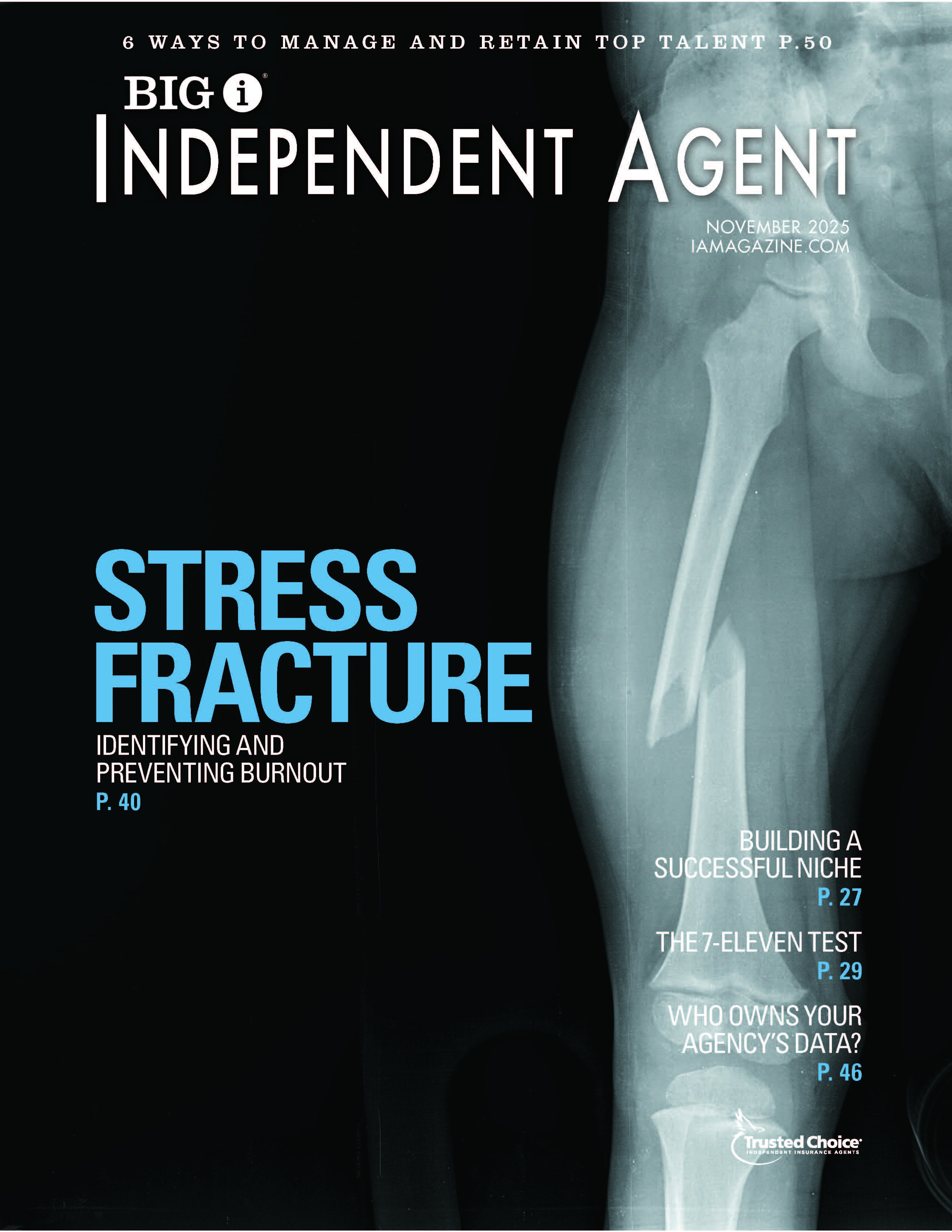On the Horizon
By: Russ Banham
Independent agents can expect modest increases in commercial lines pricing to continue in 2014. Rate hikes are expected to remain in the low- to mid-single digits at best—better news than a softening market.
“2013 turned out to be the best year in the property-casualty industry in the post-financial crisis era,” says Robert Hartwig, president of the Insurance Information Institute. “The industry still faces some headwinds from very low interest rates, but even that might be turning around a bit in 2014.”
Other industry experts agree. “Pricing is not going to firm up much more,” says Stephan Christiansen, managing director of insurance research at risk management consultancy Conning. “There’s a lot of capital in the industry right now.”
The higher pricing that prevailed at the end of 2012 was attributable to perceptions that interest rates would remain low. “When interest rates popped up 100-plus basis points in May, this started to take the pressure off of higher pricing,” Christiansen explains. “Things no longer looked as dire as they did.”
Tracy Dolin, director of North American insurance rating at rating agency Standard & Poor’s, adds that the mid- to high single-digit increases of 2013 will likely become low- to mid-single digits in the coming year. “The commercial lines sector is in such good shape that it would overcome significant catastrophe losses in 2014, were they to rear,” she explains.
Although the outlook for commercial pricing in 2014 is only passably positive, Hartwig points out a bright silver lining. “2014 should be a year where exposure growth expands at a somewhat faster pace,” he says. “With unemployment descending, this implies more jobs—at least 2 million more if the rate falls to 6.5%. More jobs means more payroll in workers comp, which translates into more premium.”
Russ Banham is an IA contributor.
SIDEBAR: Will TRIA Tip the Scales?
One factor that might alter projections and encourage significant rate hikes in 2015 is the reauthorization of TRIA—the federal terrorism risk insurance backstop credited with maintaining a robust terrorism insurance market.
“If Congress fails to renew TRIA at the end of December 2014, and insurers essentially lose this free government reinsurance—or if it is renewed in a different form—insurers may be compelled to alter their underwriting portfolios to reduce terrorism exposures,” Dolin explains. “This, in turn, could increase deductibles and co-insurance, and might translate into more substantial price increases.”
—R.B.










